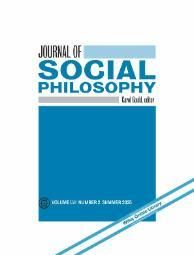By Pablo Magaña, published September 2025
Introduction:
 Political realism and ideology critique have, as of late, sparked renewed interest within Anglophone political philosophy. Contemporary political philosophy, realists complain, has become excessively grounded in moral philosophy—a branch, some say, of applied ethics (Bernard Williams 2005; Geuss 2008; Rossi and Sleat 2014; Sleat 2018).
Political realism and ideology critique have, as of late, sparked renewed interest within Anglophone political philosophy. Contemporary political philosophy, realists complain, has become excessively grounded in moral philosophy—a branch, some say, of applied ethics (Bernard Williams 2005; Geuss 2008; Rossi and Sleat 2014; Sleat 2018).
The latter, in turn, contend that political philosophers should spend greater effort analyzing how ideologies legitimize and help sustain unjust social arrangements (Shelby 2003; Haslanger 2017; Lafont 2024; Celikates et al. 2025).
Recently, a growing number of philosophers—realist ideology critics—have attempted to combine both views, claiming that while political philosophers should indeed be interested in ideology critique, they should, in doing so, eschew moral considerations, emphasizing instead ideologies' epistemic flaws—that is, drawing on epistemic, rather than on moral, normativity (Prinz and Rossi 2017; Rossi and Argenton 2021; Aytac and Rossi 2022; Clark 2024).1 The core of realist ideology critique is fairly straightforward...
